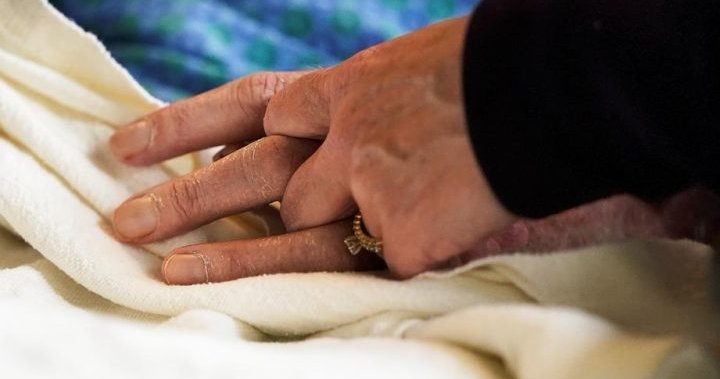
Who should get your organs? How assisted death raises hard new questions
Global News
New medical guidance takes aim at a challenging question: should people getting assisted death be able to direct who their organ donations go to?
Should Canadians seeking medical assistance in dying (MAiD) be able to direct that an organ donated after their death goes to someone they choose?
New guidelines aim to provide guidance for the Canadian organizations and transplant programs facing that challenging question, though some experts are raising concerns about how to balance who a donor wants to get the organ with who might need it most.
The guidelines, published in the Canadian Medical Association Journal on June 26, outline the recommendations for how transplant organizations and programs should handle “directed donation”, in which a person still living can designate a recipient for one of their organs.
Typically, this is a loved one or close friend who is on the transplant waitlist.
Prior to the release of the new guidelines, Canadians could only select who could receive an organ through what’s known as “living donation.” That’s when a person donates an organ or part of one for transplantation to another person while both people are still alive. These usually involve organs that the donor can live without, such as part of a liver or one of their kidneys.
In most cases involving an organ donor who has died, organs are provided to those most in need, rather than someone selected by the donor before death. Now, almost seven years after MAiD was legalized, one of the authors of the guidelines says the idea for directed donation came from questions being raised by MAiD patients.
“They said, ‘Okay, you’re now allowing organ donation after assisted dying, we want to have MAiD at home and still be an organ donor. We want to be able to choose who our organs go to,'” Dr. Kim Wiebe told Global News in an interview.
“Nobody’s done this before, but we want to try to accommodate patients’ dying wishes, essentially.”





















 Run 3 Space | Play Space Running Game
Run 3 Space | Play Space Running Game Traffic Jam 3D | Online Racing Game
Traffic Jam 3D | Online Racing Game Duck Hunt | Play Old Classic Game
Duck Hunt | Play Old Classic Game











